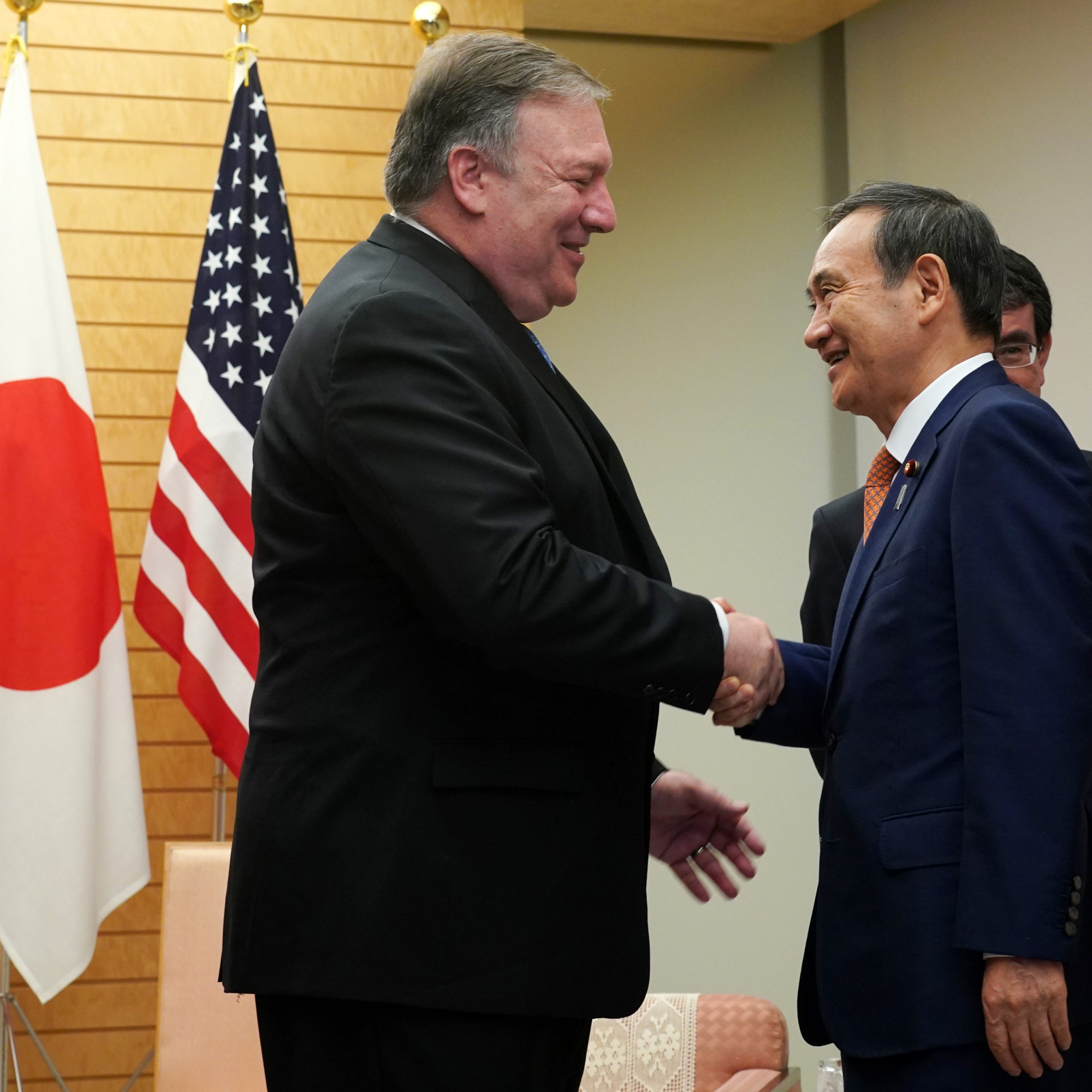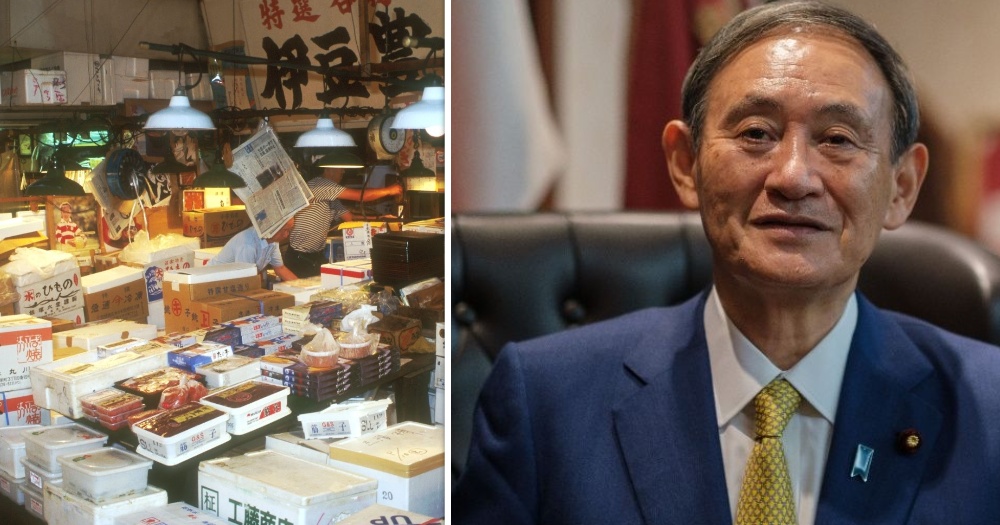Shinzo Abe and his cabinet have stepped down to make way for Japan's next Prime Minister Yoshihide Suga.
The change of guard was prompted by Abe's medical relapse.
It was about 14 years ago that the fresh faced Abe claimed the Prime Ministerial position in Japan. He did this in spite of many in the Liberal Democratic Party (LDP) considering him far too young to run the country.
Abe then resigned from the position the following year due to health concerns.
He however began his second Prime Ministerial tenure in 2012, after being convinced to run.
The focus has now shifted to what his successor might have in store for Japan.
A self-made man
Headlines so far have focused on Suga's humble upbringing.
Suga was the son of a strawberry farmer.
He also worked in a myriad of jobs, including as a security guard, and manual work in Tsukiji fish market while saving enough money for his university education.
He then attended university at Hosei, because it was the cheapest private university at the time.
Considering the background his predecessors come from, the appointment of Suga as the next Prime Minister feels almost revolutionary in a sense.
According to Sydney Morning Herald, only three of Japan's 30 post-war prime ministers have had no political family background:
"Of Japan’s 30 post-war prime ministers, only three have had no political family background. Up until the 1990s, 45 per cent of MPs inherited their seats from their fathers, Australian National University research found."
His political career wasn't that of your typical prime minister either.
In 1996, Suga was elected to the lower house of parliament at the relatively mature age of 47.
For comparison, Abe was elected to parliament at 29.
Suga in politics
Going by most media reports, Suga does not have the charisma that Abe possesses.
Words like serious, pragmatic, and determined are regularly used to describe the 71-year-old.
In fact, an AP article touched on Suga's personality through an anecdote of his younger days playing baseball:
"Suga, who played baseball in junior high school, insisted on keeping his batting stance despite an instructor’s advice, saying his style made better sense, his old friend Yuri Masashi told the Mainichi newspaper.
Apparently Suga was not talking off the cuff, and practiced and mastered the technique of a pro baseball star from Akita. “Once he makes a decision, he never sways and he is still the same,” Masashi said."
He is perhaps best known to the world at large for his role in ushering in Japan's new Reiwa era, a role that earned him the nickname "Uncle Reiwa".
While he was also tasked with meeting Mike Pompeo, Suga is more known for local policy making.
 US Secretary of State Mike Pompeo (L) speaks to Japan's Chief Cabinet Secretary Yoshihide Suga at the Prime Ministers office in Tokyo on October 6, 2018. - Pompeo said he hoped to accelerate a second summit between Kim Jong Un and Donald Trump as he kicked off an Asian trip on October 6 featuring a meeting with North Korea's leader. Photo by Eugene Hoshiko/AFP via Getty Images)
US Secretary of State Mike Pompeo (L) speaks to Japan's Chief Cabinet Secretary Yoshihide Suga at the Prime Ministers office in Tokyo on October 6, 2018. - Pompeo said he hoped to accelerate a second summit between Kim Jong Un and Donald Trump as he kicked off an Asian trip on October 6 featuring a meeting with North Korea's leader. Photo by Eugene Hoshiko/AFP via Getty Images)
According to Japan Times, Suga appears to be more focused on "populist-style policies" such as boosting inbound tourism, and slashing handphone bills.
The nation's longest-serving Chief Cabinet Secretary is also known for his no-nonsense approach to handling governmental personnel.
Here is one such example from Japan Times:
"This tactic was exemplified by the initiative Suga took in establishing the Cabinet Bureau of Personnel Affairs in 2014, which paved the way for the prime minister to appoint, at his own discretion, a significant number of elite bureaucrats at ministries and agencies of the central government."
That nose to the grindstone approach served him well during the 2009 Lower House elections where the LDP was unceremoniously booted from power by a wave of support for The Democratic Party of Japan. The DPJ won 308 seats out of 480 seats.
One of the few LDP politicians who survived? Suga.
The Nikkei Asian Review credited that victory in part to Suga's man-on-the-ground, literally, campaign style.
"During his election campaigns, he could be seen every morning standing in front of a train station, greeting businesspeople who were commuting from Yokohama to Tokyo, speaking about his policy proposals and conducting surveys. This grass roots campaigning helped him survive the 2009 lower house election, which gave the LDP a bloody nose. Over the years since then, Suga has built an unshakable support base."
Unshakeable support and the Suga era
Another defining point of his political career has been his loyalty to Shinzo Abe.
When Abe was deemed too young by his LDP colleagues, it was Suga, who formed a group of lawmakers to support his party leadership.
When Abe was contemplating returning to politics after resigning as Prime Minister a year into the job, it was Suga who convinced Abe, through the use of numbers and data, that Abe could triumph in the LDP leadership election.
That loyalty is poised to continue even as Suga begins his own tenure as Prime Minister. He is set to continue Abenomics and follow Abe's current foreign policy leanings.
Suga however is not a carbon copy of Abe's policies. AP noted that Suga supported allowing more foreign labourers into Japan so as to offset the inevitable workforce decline as Japan ages, a change Abe was not keen on.
Ultimately the change in leadership does not appear to signal a drastic change in how Japan is run, rather an almost dogged doubling down on current policies, and a strong push to restart Japan's economy after an almost year-long battering.
A commentary on CNA by Lim Tai Wei, Adjunct Senior Research Fellow at the East Asian Institute at the National University of Singapore, noted this emphasis on continuity, arguing that Japan is in good hands with Suga at the helm.
"Japan is in good hands to steer through a difficult period of an ongoing pandemic and ongoing economic challenges amid rapidly-worsening US-China trade tensions."
And if Japan is indeed looking to stay the path, what better candidate than someone who once a decision is made, "never sways".
We deliver more stories to you on LinkedIn
Image from Getty
If you like what you read, follow us on Facebook, Instagram, Twitter and Telegram to get the latest updates.
